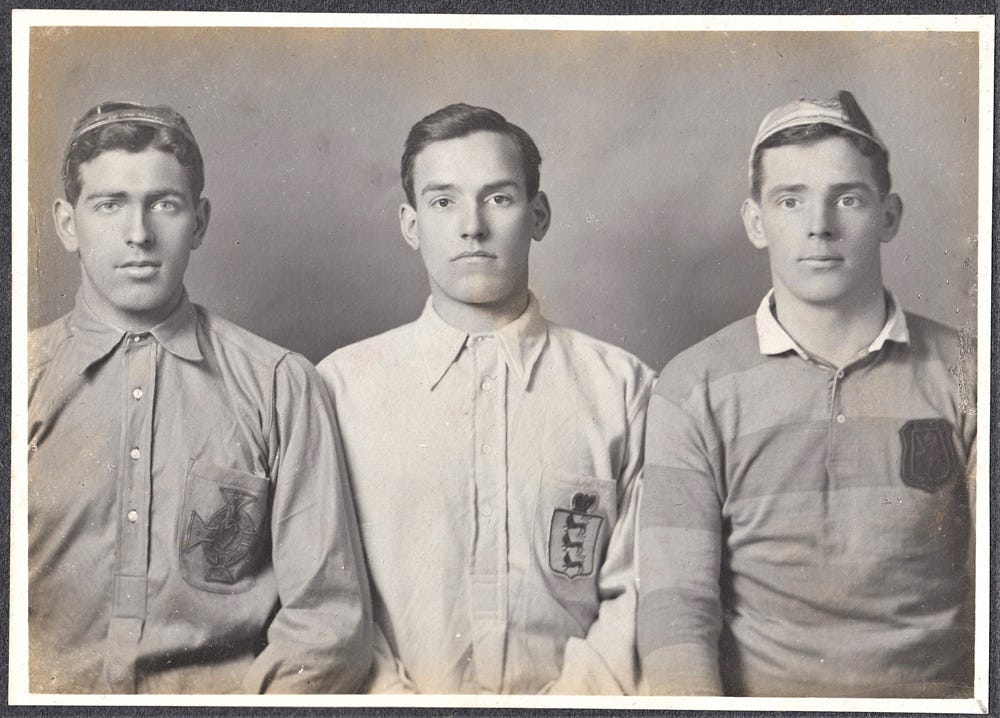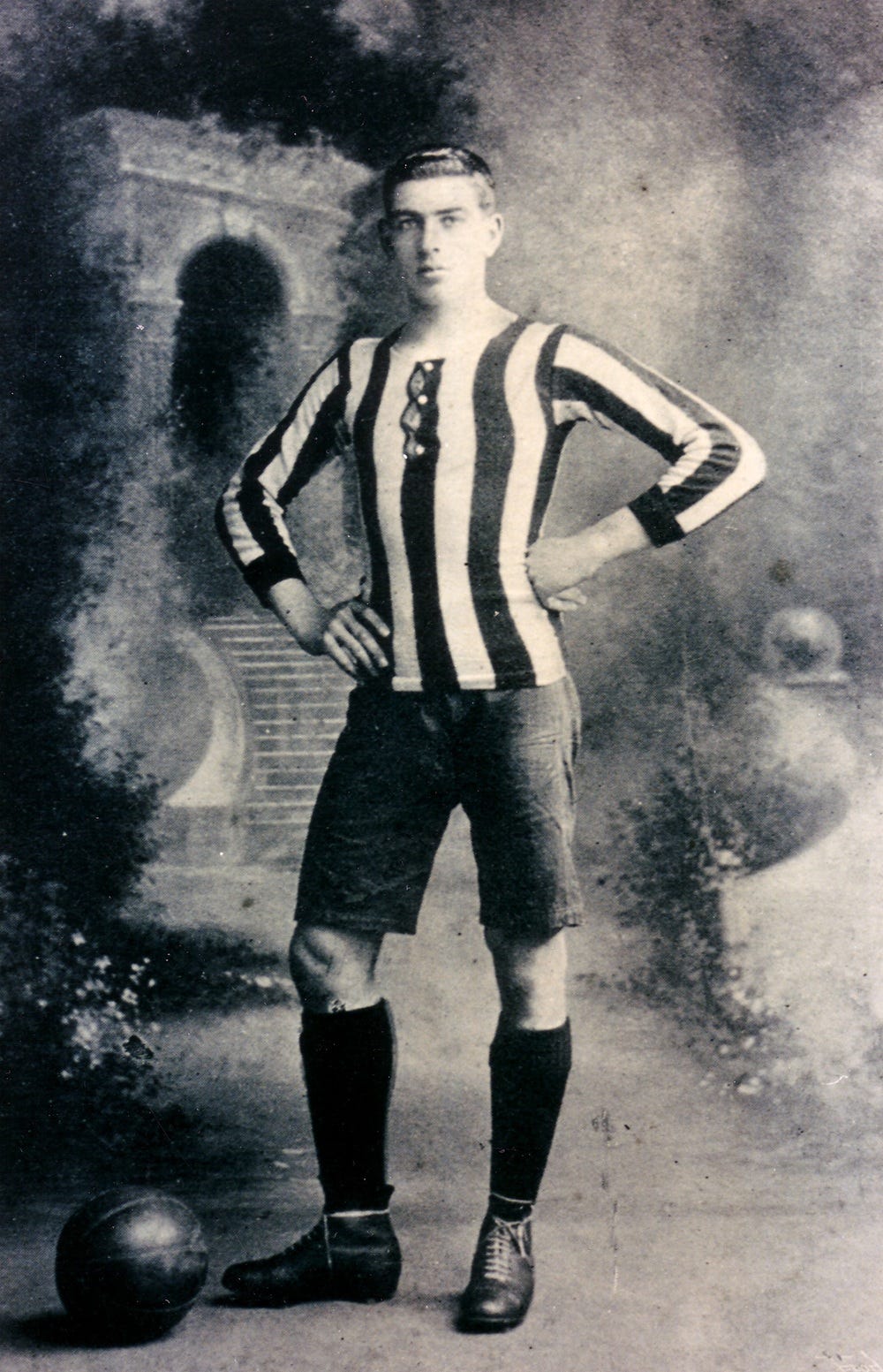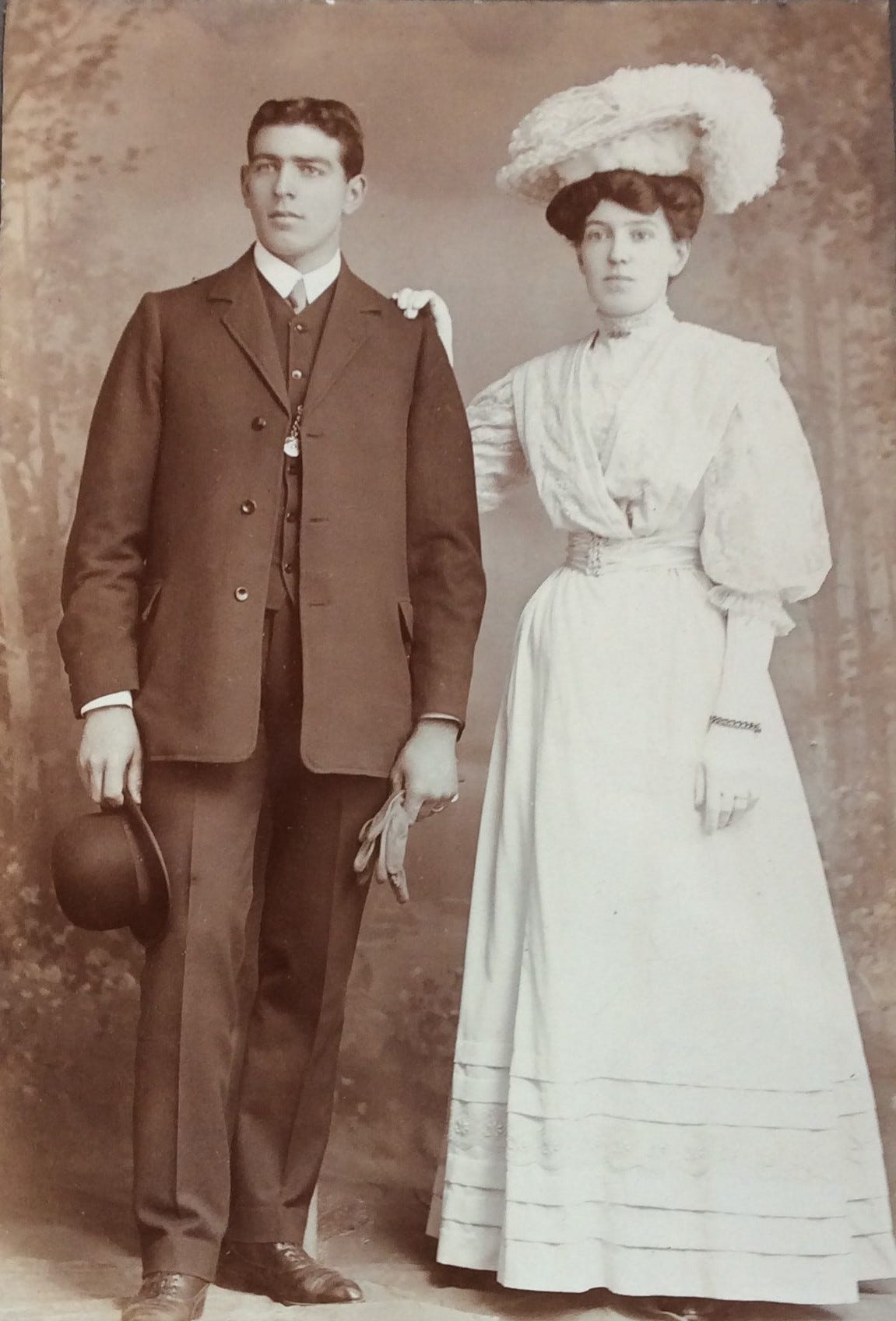Offside, outrage and oranges: the legend of Bill McCracken
A Newcastle United star became the pantomime villain for fans away from St James’ Park – and he loved it. Tony Henderson reports
During a derby match at Roker Park, Newcastle’s long-serving full-back Bill McCracken was pelted by Sunderland supporters with apples and oranges and, it is reported, “other provisions for the table.”
McCracken said after the match: “The pitch looked like a fruit market.”
The defender was well used to being a target for fans in away matches. He was, after all, called the “Offside King,” having perfected the law to such an extent that exactly a century ago the football authorities were forced to change the rules.1
McCracken was part of Newcastle’s great Edwardian era, when the club won three Football League titles and reached five FA Cup finals during the decade before the First World War.

He served the club for 19 years, making 444 appearances, and was still working as a scout in his 90th year.
Now Newcastle United historian Paul Joannou has produced another of his meticulously researched books – this time a biography of McCracken, whose career demands proper recording.
The National Football Museum’s Dr Alexander Jackson says: “Forwards attract most attention, particularly on Tyneside, where the cult of the No 9 burns strong.
“McCracken’s power came from a few careful yards of movement and a loud appeal to the officials.
“Outside of Tyneside McCracken was never the most popular of players. Some defenders have been unpopular with crowds due to their physical or brutal style. McCracken was unpopular because he used his brain.
“Few players in the 20th century can claim to have had such an impact on the laws of the game and its subsequent development.”
Paul Joannou says: “McCracken was much more than a tactical defender who exploited the laws of the game as they were then. Arguably he was the best defender of the time, and a character with a capital C.
“Often now footballers are labelled legends far too easily without real justification, but McCracken was very much a true legend of the game.”
Bill McCracken hailed from Belfast, where he played for top side Distillery. In an echo of recent events, he was pursued by Liverpool, who offered £700 for his transfer, but it was Newcastle who won the chase in 1904 for the 21-year-old.
McCracken later wrote: “My first look at Newcastle was far from inspiring. I was met at the station by three directors in old-fashioned frock coats and square silk hats. I couldn’t help saying to myself that they looked more like funeral directors.”
United players would hold team meetings to debate tactics. Paul says: “This included the strategy of operating the offside trap. United’s ‘Council of War’ developed that plan almost to perfection.
“It had the result of infuriating the opposition and spectators. The Newcastle right-back soon became the pantomime villain at every ground. But all knew that, aside from his offside plan, he was a formidable defender.”
Being the most barracked player did not faze McCracken. “It’s like water off a duck’s back,” he said.
McCracken went on to manage Hull City, Aldershot, Gateshead and Millwall, and then took up scouting, a role he filled at Newcastle for seven years.
His discoveries included Newcastle stars George Eastham and Dick Keith, plus Watford and later Spurs and Arsenal goalkeeper Pat Jennings.
Bill McCracken died a few weeks before his 96th birthday. Perhaps the most apt tribute would have been the quote from United goalkeeper Jimmy Lawrence: “McCracken delighted to upset the opposing team and spectators.”
Today, there is another word for it, and that would have amused McCracken even more.
Bill McCracken: The Offside King. By Paul Joannou. £19.99.
We’re not even going to attempt to explain how the rules were changed…





